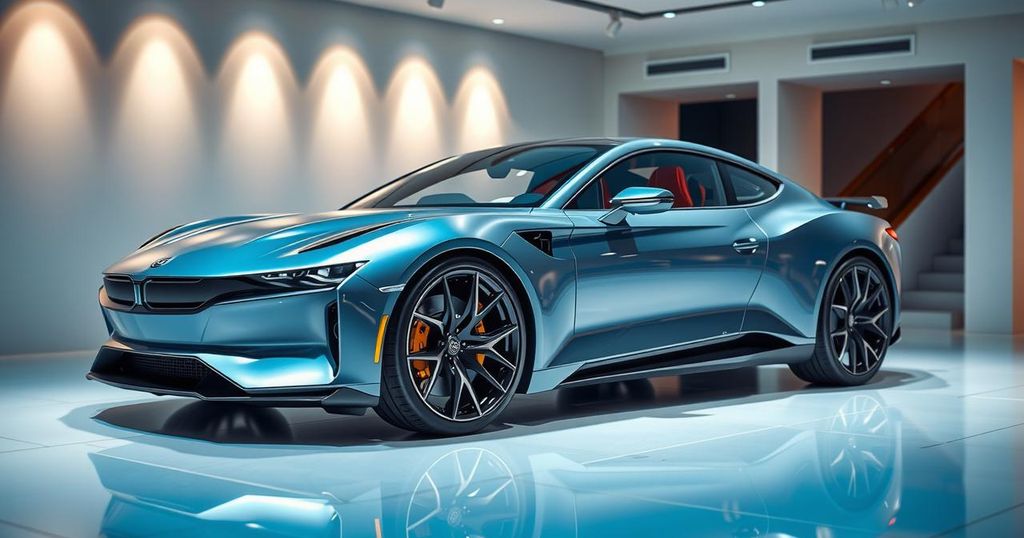BMW AG Faces Profit Decline Amid Tariff Challenges and China Sales Drop

BMW AG’s carmaking profits are projected to fall below long-term targets due to rising tariffs and declining sales in China. The company anticipates a margin of 5-7%, well below its goal of 8%. Competitors in China are impacting market share, prompting BMW to introduce new electric vehicles and consider increased North American production to navigate tariffs and improve financial outlooks.
BMW AG anticipates that its carmaking profits will significantly fall below long-term targets due to escalating trade tensions and declining sales in China. The company projects an automaking margin of 5% to 7% for this year, down from 6.3%, the lowest margin recorded in four years. BMW aims to maintain margins above 8% but has faced challenges, including a 4.5% decline in share prices on a recent Friday, totaling over a 20% drop within the year.
Intense competition from local electric vehicle (EV) manufacturers, such as BYD Co. in China, continues to impact BMW’s market share. Coupled with US and European tariffs, which are estimated to cost the company approximately €1 billion this year, BMW’s outlook appears overshadowed. CEO Oliver Zipse discussed this challenging landscape in an interview, emphasizing the significant financial burden posed by tariffs on vehicle production in Mexico.
In an effort to regain market share, BMW plans to launch its Neue Klasse line of EVs within the year and introduce 40 new and updated vehicle variants by 2027. Zipse expressed optimism, stating, “We have growth ambitions because we have strong products,” and indicated a positive outlook into 2025, despite current political complexities.
The company is also adapting to US tariffs impacting production in San Luis Potosi, Mexico. BMW is exploring increased manufacturing in North America to comply with the USMCA trade deal, even as some tariffs pose longer-term uncertainties. Zipse noted, “We don’t think that all these tariffs will last very long, though some of them might last longer.”
In 2024, BMW’s net profit decreased by about 37% to €7.68 billion, influenced by a recall related to Continental AG’s braking systems. Global car sales fell by 4%, primarily due to a sharp decline of 13.4% in China. The company expects car sales to experience slight growth as inflation stabilizes and interest rates moderate, despite ongoing difficulties in the Chinese market. Citi analyst Harald Hendrikse cautioned that assumptions of growth in Europe and the US may not effectively compensate for declines in China.
In summary, BMW AG faces significant challenges in achieving its profit targets this year due to increasing trade tensions and declining sales in China, alongside high competition from local EV manufacturers. The company aims to introduce new electric vehicles and expand production in North America while navigating tariff-related costs. Although a modest recovery in sales is anticipated, analysts express concerns over the feasibility of offsetting losses from China.
Original Source: www.business-standard.com




